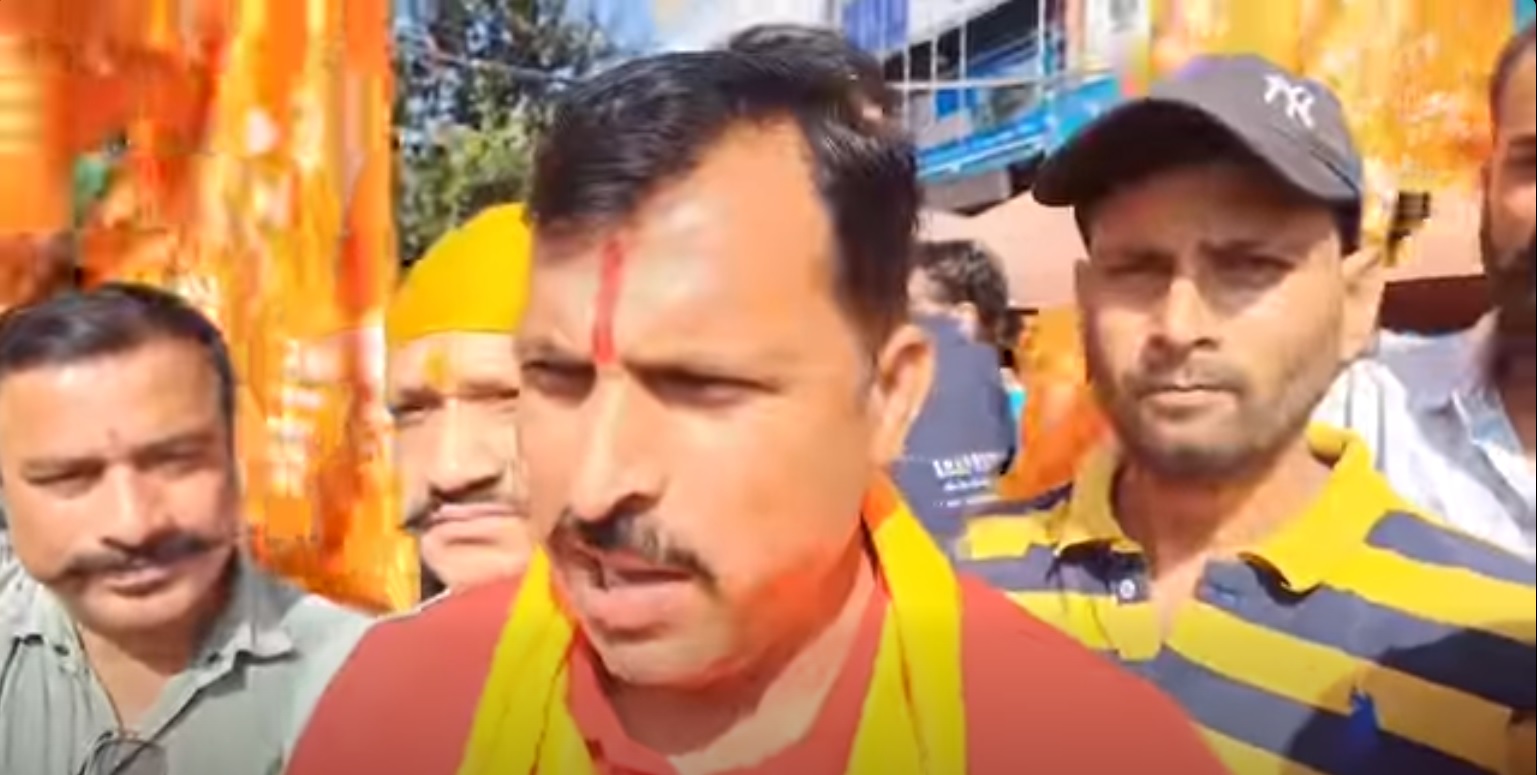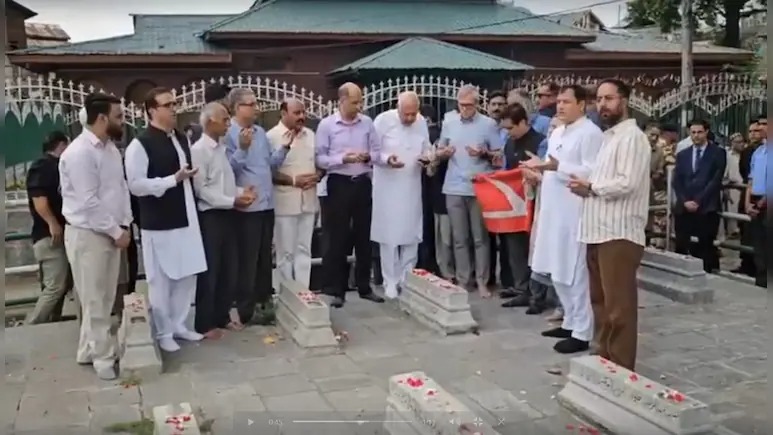Merit vs Faith: Vaishno Devi Medical College Admissions Row Fuels Communal Debate in J&K
By: Javid Amin | 27 November 2025
What Sparked the Controversy
-
In the first batch of MBBS admissions at Shri Mata Vaishno Devi Institute of Medical Excellence (SMVDIME), 42 out of 50 seats went to Muslim students, per the standard NEET‑UG merit list — an outcome confirmed by official sources.
-
Following the admission list release, several Hindu-majority and right-wing organisations — supported by the local Bharatiya Janata Party (BJP) — protested. They argued that since SMVDIME is run under the auspices of the Vaishno Devi Shrine Board (funded by offerings from Hindu pilgrims), Hindu students deserve preferential treatment.
-
BJP leaders submitted a memorandum to the J&K Lieutenant Governor asking for a review of the MBBS list, calling for future “corrections” and a quota for Hindus or devotees of the shrine.
Merit vs. Faith: What Critics Say & What Defenders Reply
The Case for Merit
-
The college authorities and supporters argue that admissions were made strictly on the basis of NEET merit, in compliance with national medical education norms. SMVDIME is not a minority institution.
-
Supporters see the demands for religious or faith-based reservations as “communalising” medical education — undermining the principle of equal opportunity.
-
Leaders from regional parties pointed out that the institution receives public grants (in addition to shrine-linked resources), which means it must uphold secular admission criteria and equal citizenship rights.
The Faith-Based Demand: What Proponents Argue
-
BJP and allied Hindu groups claim that since the shrine’s funds come from Hindu devotees, the institution should reflect the religious-cultural identity of those donors — and that “devotees’ contributions” entitle them to preferential access.
-
They argue this is not “against merit,” but an assertion of religious-community rights — akin to how minority-run institutions sometimes favor students of their community.
Political Fallout: Parties, Positions & Escalation
-
On one side, BJP and allied Hindu organisations (such as VHP, Bajrang Dal) have staged protests, demanded cancellation of the admission list, and urged amendments to the Shrine Board Act.
-
On the other side, the ruling regional party National Conference (NC), along with other secular-minded leaders, have condemned these demands. They argue that such moves “communalise education” and undermine constitutional principles.
-
The controversy has sparked wider debate across J&K: whether shrine-linked institutions should follow religious preferences or secular merit; whether public funding demands equal access; and whether religious identity should influence modern professional education.
Legal & Constitutional Implications
Several important legal and constitutional issues arise from this row:
-
As SMVDIME does not have minority-institution status, any faith-based admission quotas or reservation demands would violate constitutional norms of equality and non-discrimination under Articles 14 and 15.
-
The national entrance-exam system (NEET) is premised on merit-based admissions for all medical colleges. Bypassing it on religious grounds could undermine the integrity of medical education and adversely impact standards.
-
Given that SMVDIME receives government grants in addition to shrine-linked funds, public accountability and secular admission norms apply.
Supporters of merit thus see the demand for Hindu-only seats as a dangerous precedent — one that could destabilize not only this institution, but open the door to identity-based reservations in other public or semi-public educational institutions.
Social Impact & Communal Risks
-
The demand for religion-based admissions threatens to deepen communal fault lines in a region that is already sensitive to religious and regional divisions.
-
Students admitted purely on merit — irrespective of their religion — may face stigma, discrimination or insecurity, which could discourage meritorious aspirants from minority communities.
-
Right-wing mobilisation and protests risk polarising communities, undermining the inclusive ethos of education and threatening harmony in a fragile socio-political environment.
Civil-society and student-group voices condemning the demand warn that “mixing faith and professional education is a dangerous gamble.”
What’s Next: Possible Outcomes & Stakes
1. Status Quo Holds — Merit Prevails
Given legal constraints and constitutional compliance, authorities may retain the existing admission list. Future admissions likewise will likely follow NEET merit, resisting religious quotas.
2. Pressure Grows — Demands for Changes Intensify
If demands persist, right-wing groups may push for amending the Shrine Board Act or seeking minority-type status for SMVDIME — a move that could trigger legal challenges, social unrest, and long-term institutional instability.
3. Wider Precedent — Other Shrine-Funded Institutions Face Similar Demands
If religious quotas are accepted for SMVDIME, similar demands could emerge in other shrine- or temple-funded colleges/universities across India — opening a nationwide debate on faith, funding, and access.
Why This Row Matters — Beyond Kashmir
This controversy in Kashmir has profound implications beyond the immediate admissions. It reflects a broader national challenge:
-
balancing religious identity and constitutional secularism
-
preserving merit-based standards in professional education
-
preventing communal politics from intruding into academic institutions
-
ensuring equal access to opportunities irrespective of faith
If institutions begin admitting students on the basis of religion, the foundational idea of India’s secular, merit-oriented educational landscape could be compromised.
Bottom-Line: Merit. Secularism. Education.
The demand for Hindu-only quota at the Shri Mata Vaishno Devi Medical College has ignited a political, social and constitutional storm — and rightly so.
In professional fields like medicine, merit matters — competence, knowledge and skill should decide who enters, not religion or identity. Education must unite, not divide.
As the controversy unfolds, Kashmir — and India — stand at a crossroads. The direction chosen now may define the future of equitable, secular education for generations to come.
For the sake of fairness, competence, and constitutional values: merit must prevail, not faith-based preference.



